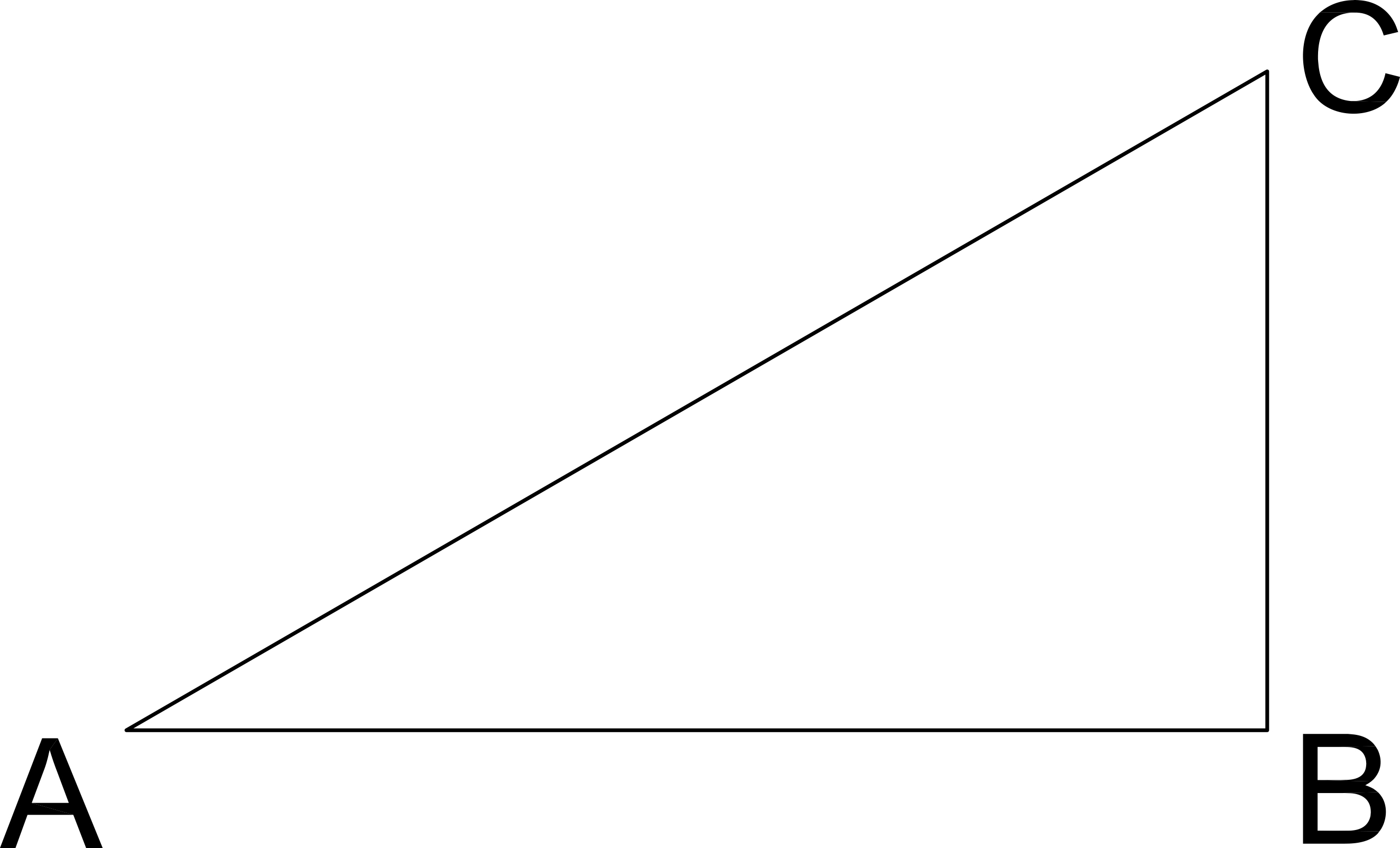All ACT Math Resources
Example Questions
Example Question #4 : How To Find An Angle With Cosine
A 

You can draw your scenario using the following right triangle:

Recall that the cosine of an angle is equal to the ratio of the adjacent side to the hypotenuse of the triangle. You can solve for the angle by using an inverse cosine function:


Example Question #5 : How To Find An Angle With Cosine

What is the value of 
Recall that the cosine of an angle is equal to the ratio of the adjacent side to the hypotenuse of the triangle. You can solve for the angle by using an inverse cosine function:


Example Question #6 : How To Find An Angle With Cosine
A support beam (buttress) lies against a building under construction. If the beam is 

Our answer lies in inverse functions. If the buttress is 

Thus, using inverse functions we can say that
Thus, our buttress strikes the buliding at approximately a 
Example Question #7 : How To Find An Angle With Cosine
A stone monument stands as a tourist attraction. A tourist wants to catch the sun at just the right angle to "sit" on top of the pillar. The tourist lies down on the ground 


Our answer lies in inverse functions. If the monument is 

Thus, using inverse functions we can say that
Thus, our buttress strikes the buliding at approximately a 
Example Question #1 : Cosine

If angle A measures 30 degrees and the hypotenuse is 4, what is the length of AB in the given right triangle?
8√3
√3
4
2
2√3
2√3
Cosine A = Adjacent / Hypotenuse = AB / AC = AB / 4
Cosine A = AB / 4
Cos (30º) = √3 / 2 = AB / 4
Solve for AB
√3 / 2 = AB / 4
AB = 4 * (√3 / 2) = 2√3
Example Question #1 : Cosine

To solve this problem you need to make the triangle that the problem is talking about. Cosine is equal to the adjacent side over the hypotenuse of a right triangle
So this is what our triangle looks like:

Now use the pythagorean theorem to find the other side:
Sine is equal to the opposite side over the hypotenuse, the opposite side is 12
Example Question #1 : Cosine
The hypotenuse of right triangle HLM shown below is 




Remember that
Then, we can set up the equation using the given information.
Now, solve for 
Example Question #2 : How To Find A Missing Side With Cosine

What is 
Recall that the cosine of an angle is the ratio of the adjacent side to the hypotenuse of that triangle. Thus, for this triangle, we can say:
Solving for 

Example Question #3 : How To Find A Missing Side With Cosine
A man has a rope that is 

Begin by drawing out this scenario using a little right triangle:

We know that the cosine of an angle is equal to the ratio of the side adjacent to that angle to the hypotenuse of the triangle. Thus, for our triangle, we know:
Using your calculator, solve for 
This is 
Thus, rounded, your answer is 

Example Question #4 : How To Find A Missing Side With Cosine

In the right triangle shown above, what is the 
Use SOH-CAH-TOA to solve for the sine of a given angle. This stands for:

From our triangle we see that at point 



All ACT Math Resources









































































